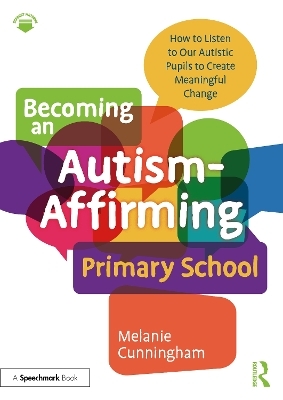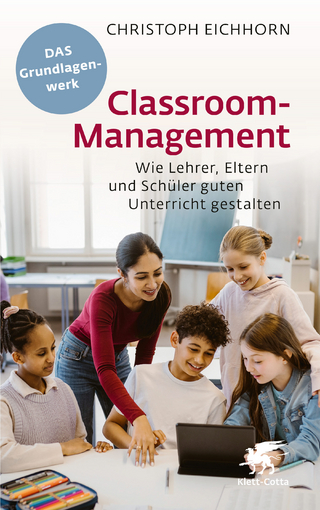
Becoming an Autism-Affirming Primary School
Routledge (Verlag)
978-1-032-50008-9 (ISBN)
- Noch nicht erschienen (ca. November 2024)
- Portofrei ab CHF 40
- Auch auf Rechnung
- Artikel merken
This accessible guide explores what an autism-affirming primary school should be like, from the perspective of autistic pupils, introducing a tool to gather pupil voice and sharing a toolbox of strategies informed and requested by autistic children themselves. The book presents a fun and engaging approach, the three houses, which can be used with autistic children to generate a greater understanding of how they are experiencing school and how they may be masking their difficulties.
Chapters focus on common themes, from developing a shared, positive understanding of autism throughout the school, to consideration of the classroom environment, hidden support, homework and routines. By identifying simple adjustments to practice, schools can create a more positive experience for autistic children, building self-advocacy and helping to alleviate feelings of anxiety. The book includes a wealth of easy-to-implement, practical strategies that place on emphasis on whole-school approaches, as well as opportunities for readers to reflect on their current practice. Quotes from autistic children, describing their experiences, are woven throughout the book.
Becoming an Autism-Affirming Primary School keeps the voices of autistic pupils at its core and is a valuable read for primary school teachers, SENCos and senior leaders to ensure they are offering much-needed support for autistic children, which will also be of benefit to their non-autistic peers. Parents may find it useful to generate an understanding of how their autistic children might be experiencing school and autistic children themselves may find the narrative from other autistic children valuable.
Melanie Cunningham has enjoyed working with autistic children for many years. She is currently an Assistant Headteacher and has previously led a Specialist Resource Provision for autistic children. Her research findings on what an autism-affirming primary school should be like, from the perspective of autistic pupils, were published in the International Journal of Inclusive Education. She has spoken at national and international conferences and has a Masters in Special and Inclusive Education from University College, London.
Acknowledgements
Chapter 1: Introduction and aims of the book
Chapter 2: Why we must listen to autistic children and young people
Chapter 3: The three houses approach to gathering pupil voice
Chapter 4: What the pupils said – understand me, I may surprise you
Chapter 5: What the pupils said - help me to understand, understand myself and understand others
Chapter 6: What the pupils said - hide support for me, or I won’t use it
Chapter 7: Concluding thoughts and reflections on what an autism-affirming school should be like, from our pupils’ perspectives
Appendices
Index
| Erscheint lt. Verlag | 29.11.2024 |
|---|---|
| Zusatzinfo | 3 Tables, color; 17 Tables, black and white; 34 Line drawings, color; 3 Line drawings, black and white; 8 Halftones, color; 42 Illustrations, color; 3 Illustrations, black and white |
| Verlagsort | London |
| Sprache | englisch |
| Maße | 174 x 246 mm |
| Themenwelt | Sozialwissenschaften ► Pädagogik ► Schulpädagogik / Grundschule |
| Sozialwissenschaften ► Pädagogik ► Sonder-, Heil- und Förderpädagogik | |
| ISBN-10 | 1-032-50008-5 / 1032500085 |
| ISBN-13 | 978-1-032-50008-9 / 9781032500089 |
| Zustand | Neuware |
| Haben Sie eine Frage zum Produkt? |
aus dem Bereich


